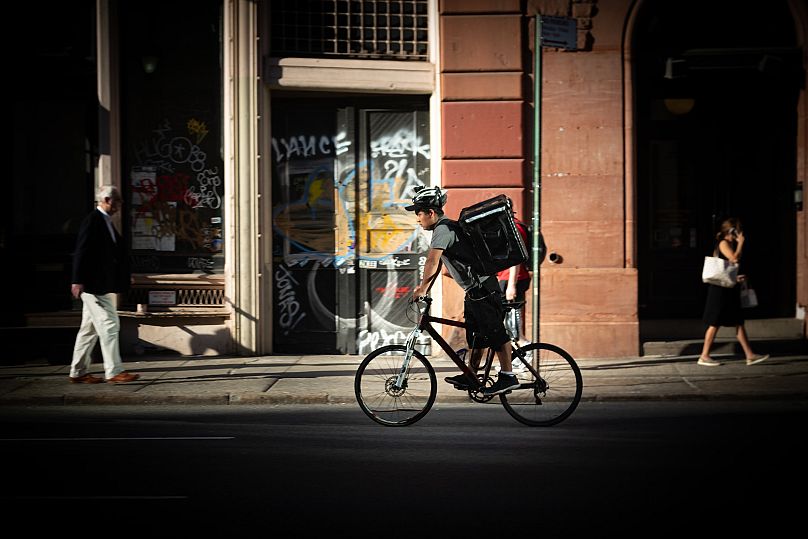Riders for platforms like Uber Eats can earn bonuses doing "quests" against the clock. But a fatal accident suggests there might be more at risk than money.
How many deliveries can you make in an hour? How about a day? Three days?
 ADVERTISEMENT
ADVERTISEMENT
 ADVERTISEMENT
ADVERTISEMENT
For many gig workers in the food delivery industry, these kinds of challenges are part of the job, with some companies offering bonus pay for completing the tasks on offer.
But a court case in Japan has raised questions over a system that can incentivise workers to do more and go faster after a fatal accident in the Japanese capital.
In April last year, a bike courier working for Uber Eats allegedly collided with a 78-year-old man, killing him. At the time of the accident, the courier was in the middle of a "quest" - Uber Eats' term for its system of delivery challenges.
The 28-year-old man told the court, "I thought I'd keep going till I reached the point where I could receive a reward," Japanese media reported.
Against the clock
According to a 2021 report on Uber Eats in Japan, couriers working for the delivery service can earn a bonus of about 3,500 yen (€27) for making 30 deliveries, and up to 17,000 yen (€131) for making 90 deliveries in four days.
Missing the target means no bonus.
"If you get paid extra based on the number of deliveries you make in a limited amount of time, the risk of accidents increases as the delivery person naturally rushes to make as many deliveries as possible," lawyer Hironori Niwa told Japan's Asahi Shimbun newspaper.
"It is undeniable that the Uber Eats system caused the accident, and I think this case raises the alarm about a system that prioritises profit over safety," Niwa added.
'Accept every order'
Niels van Doorn, an assistant professor at the University of Amsterdam and lead researcher of a project investigating platform labour told Euronews Next that quests and similar incentive programmes can be a way for companies to keep their freelance riders working longer.
"They offer gamified incentives like quests in order to keep their riders - who are freelancers and technically able to log in and out at any time, while being free to reject orders - logged into the app for as long as possible and to have them accept every order that comes their way," van Doorn said via email.
The financial incentives on offer can make delivering for gig work platforms like Uber Eats a high-stakes game where a big payout is far from certain, van Doorn said.
"When you're on a quest, you're in it to win it: you are less likely to scrutinise the payout/distance ratio and will just accept the incoming order because completing it brings you closer to your target," he said.
Meanwhile, because the individual orders you accept may have lower payouts, you may eventually pay the bonus out of your own pocket - at least in part".
Are quests optional?
Being "in it to win it" can have other consequences.
In 2020, the volunteer-led Uber Eats Union in Japan surveyed workers delivering for the company on accidents that had happened while logged in to the app.
Of 32 accident reports received between January and March that year, 74 per cent of them occurred while couriers were making deliveries to customers.
A change in the survey methodology meant that not all contributors were asked about Quests, but of the 15 who were, 73 per cent said they were carrying out a quest when their accident happened.
Uber Eats did not respond to a Euronews next request for comment, but in response to similar stories in other countries the company has previously highlighted the fact that taking part in quests is entirely optional for couriers.
But for van Doorn, the choice on offer is not a fair one.
"While riders are technically free to choose when to log in and go on a quest, the bills they need to pay and the food they and their families need to be able to eat and stay alive all present urgent necessities that will inform such a free choice," he said.
"When you present a person in need of cash with an option to ostensibly make more of it, then this person will be inclined to take it - especially when presented in the form of a game-like proposition".











